June 4, 2025 | 17:40 GMT +7
June 4, 2025 | 17:40 GMT +7
Hotline: 0913.378.918
June 4, 2025 | 17:40 GMT +7
Hotline: 0913.378.918
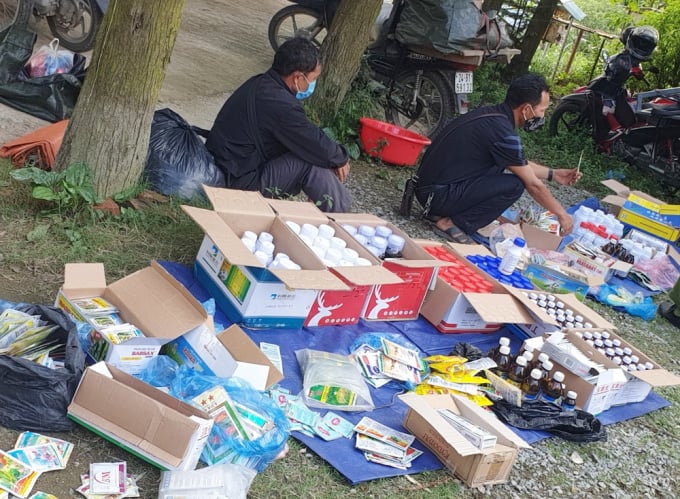
Pesticides are traded along provincial road 158. Photo: L.P.
In some localities of the districts of Muong Khuong, Si Ma Cai, Bac Ha, Bat Xat, spontaneous trading in pesticides is taking place. The management and control of the trade has faced a lot of difficulties.
Recently, an interdisciplinary task force has inspected, discovered and seized more than 100kg of insecticide, herbicide and fungicide of unknown origins at a market in Ban Lau Commune, Muong Khuong District.
Next, in early April, the authorities of Lao Cai province discovered 7 barrels with 148 bottles of pesticides (fast-burning type) inside. They are of unknown origins. These bottles labeled Lagoote 210SL containing Paraquat active ingredient, the volume of 1,000ml/bottle. This ingredient is not on the list of plant protection drugs permitted to use in Vietnam.
Lately, the Bat Xat District Police, Lao Cai province in coordination with Market Surveillance Team No.2 ( Lao Cai Directorate of Market Surveillance) detected a number of vendors in selling a large quantity of plant protection drugs along provincial road 158, (the section through Ngai Tro Village, A Mu Sung Commune).
Through inspection, the police found that the drugs were owned by Vang A Sang (born in 1982), Trang A Hoa (born in 1992) and Hau A Giay (born in 1976). They all lived in Nam Chac Commune, Bat Xat District, Lao Cai. The authorities seized 227 bottles and 60 packs of herbicide, 680 packs of rat poison and a large quantity of pesticide bottles varying in types with volume from 50ml-1.1litter per bottle. All labels were written in Chinese without Vietnamese instruction.
Plant protection drugs of unknown origins are often sold at the beginning of the crop, along the provincial road or at local markets, etc. Moreover, due to the fact that the local people have limited awareness of the problem, these drugs are still consumed.
In addition, the range of agricultural materials on the list permitted to produce and trade are wide with nearly 4,000 plant protection drugs , over 14,000 fertilizers. Meanwhile, many off-the-list pesticides produced in China and illegally imported to Vietnam have price lower as much as 30-40%,so local people still buy them. Therefore, it is difficult to manage and control plant protection drugs in the market.
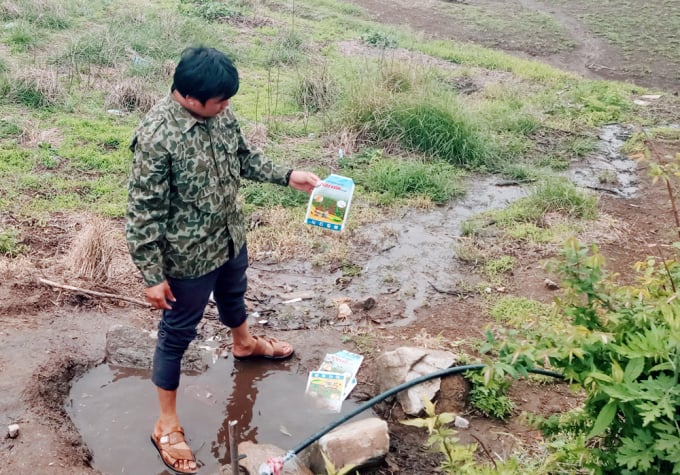
Empty bags of pesticides are disposed after use. Photo: T.P.
In order to cope with the situation, People's Committee of Lao Cai province issued a directive on strengthening management of trade and use of plant protection drugs to contribute to development of agricultural production in the province.
Mr.Hoang Quoc Khanh, Vice Chairman of Lao Cai Provincial People's Committee said plant protection drugs are necessary in food production, ensuring protection of crops against pests. Apart from the positive points, if the chemicals are misused input costs will increase and the quality of agricultural products will be affected directly; thereby negatively making impacts on the market, human health and environment.
Over the past time, the departments, offices and people's committees at all levels in the province paid attention and directed effectively the management of trade and use of plant protection drugs. However, in some mountainous and border areas, the work did not get attention as it should be. Consequently , illegal trade in plant protection drugs including illegal import and off-the-list drugs still occurs in the market.
Several agricultural products were returned after being export due to residual pesticides, adversely affecting the brand, quality of the products as well as income of local people and businesses.
Therefore, it's necessary to improve quality of agricultural products to meet requirements of the domestic and overseas markets through increasing the effectiveness and efficiency of State management over plant protection drugs at provincial, district and commune levels; clearly define responsibilities, create a consensus of management from province to commune.
In which, the Department of Agriculture and Rural Development and the relevant departments and offices in coordination with the local authorities conduct propaganda work and instruct local farmers to produce commercial commodities and apply the "4 right" principle in the use of pesticides:" "right drug", "right dose", "right time" and "right method" in order to produce safe products for consumers.
Consider the establishment of self-administered pesticide service team in assessing the implementation of criterion No.13 in building new-style rural areas.
Launch and promote the movement of using bio-pesticides, herbal drugs on the list of plant protection drugs permitted to use.
At the same time, raise public awareness of collecting empty bags of pesticides after use to treat and destroy according to regulations.
Translated by Mai Tham
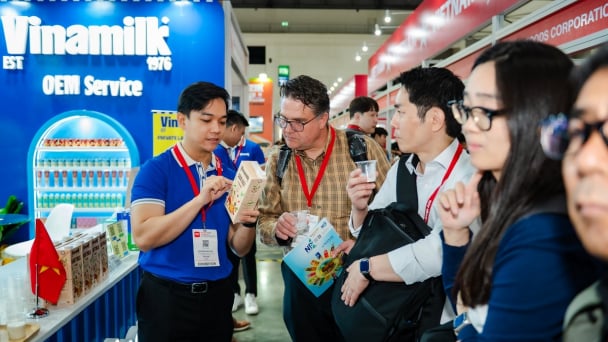
(VAN) At Thaifex Anuga Asia 2025, Asia’s leading food and beverage trade show, more than 170 Vietnamese enterprises are participating, with Vinamilk having been a consistent presence for nearly 20 years.
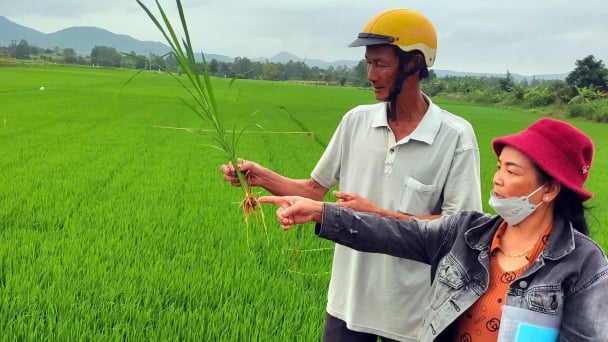
(VAN) On June 3, the Institute of Agricultural Environment organized a workshop titled 'Supporting greenhouse gas inventories in agriculture: Enhancing technical and governance insights for rice production in Vietnam'.
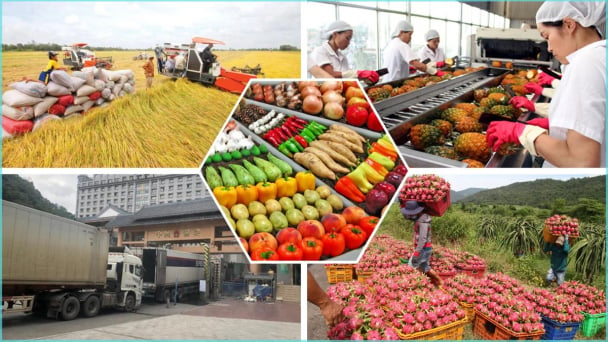
(VAN) In the first 5 months, the export turnover of agricultural, forestry, and fishery products rise significantly, thanks to a relatively stable domestic production and export market.

(VAN) Deposit Return System (DRS) created a natural cycle of responsibility, reinforced by social norms and practical necessity. Materials had value and returning them was second nature.

(VAN) According to the Norwegian Ambassador to Vietnam Hilde Solbakken, sorting waste at source and individual responsibility are key factors for sustainable waste management.
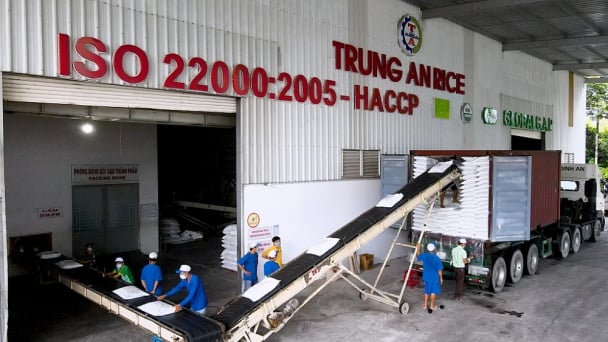
(VAN) On June 5, in Can Tho City, the Vietnam Rice Industry Association (VIETRISA) and Trung An Company will hold a ceremony to export the first shipment of 'Green and Low-Emission Vietnam Rice' to Japan.

(VAN) Minister Do Duc Duy believes this event will mark the start of a new chapter in deeper cooperation between Vietnam’s agricultural sector and the state of Iowa.